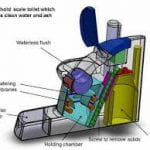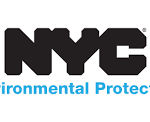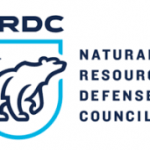
We met with two tour guides from the Bill Gates Discovery Center. They gave information on a topic that doesn’t usually come to mind when you think of water pollution. We learned about how Western flush toilets(most toilets used in America) take gallons of drinking water to flush. Which is a limited resource as it is, meanwhile, it’s not like we’re drinking from our toilets! Not to mention that they are anything but affordable. Toilets aren’t accessible to everyone, and using the restroom might mean something entirely different to someone on the other side of the world.
At the Bill Gates Discovery Center, scientists are working hard to create more efficient and affordable toilets that solve as many problems in one model. Some of the prototypes don’t even require water to flush, also known as a “water-less flush.” More environmentally friendly toilets could be one of the keys to preventing water pollution, and at the forefront of encouraging water conservation.























